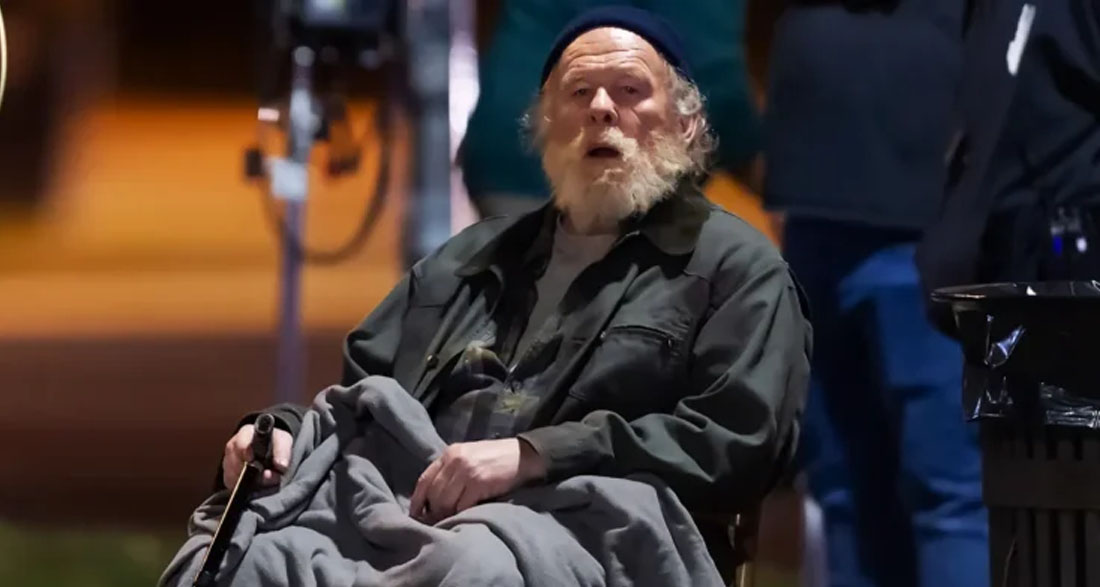Nick Nolte’s life has been anything but ordinary. From being crowned the “Sexiest Man Alive” in 1992 to battling personal demons, his journey is one of resilience, change, and, ultimately, redemption. Though he rose to fame in the 1990s and became one of Hollywood’s most iconic stars, his path to success was marred with struggles that tested his will to keep going.

Nolte’s story began on stage at the Pasadena Playhouse and in various regional theater productions. But it was the 1976 TV miniseries Rich Man, Poor Man that made him a household name. As his career grew, so did his recognition for his looks.

By 1992, he was crowned People magazine’s Sexiest Man Alive, known not just for his striking appearance but for his rough-around-the-edges charm. His portrayal of the “bad boy” with a heart of gold earned him a reputation that fans and critics alike couldn’t ignore.

But fame came with a dark side. Nolte’s battle with addiction began as early as his school years when he was expelled for drinking during football practice. His relationship with alcohol and drugs spiraled out of control, with his excessive drinking often making headlines.

He would regularly show up to set in a robe and pajamas after spending the morning at the local liquor store. His co-star from The Ultimate Solution of Grace Quigley (1985), the legendary Katharine Hepburn, famously confronted him. “I hear you’ve been dead drunk in every gutter in town, and it has to stop,” she said.

Nolte, with his typical bravado, retorted, “I can’t stop. I’ve got a few more to go.”
The actor’s troubles came to a head in 2002 when he was arrested for driving under the influence of alcohol and drugs. The incident led him to seek help, entering rehab and spending hours in a hyperbaric chamber to repair the brain damage caused by his substance abuse.

In an interview in September 2017, Nolte admitted that he drank “on and off” for years before finally quitting for good. “Now I can have a drink and stop, but I used to fill the gaps between adrenaline rushes with booze and drugs,” he explained.

But even as he struggled to rebuild his life, Nolte faced more devastating blows. In 2018, a wildfire destroyed his Malibu home, marking the second time he had lost a house to such a disaster. “You feel helpless,” he shared in a November 2018 interview.
“I lost all my scripts, the preparation, the clothes from every film I’d ever done. But everybody’s safe. You just have to start over.” Despite this, Nolte refused to let setbacks stop him. “I don’t understand retirement. I just don’t know what I’d do with myself,” he said, determined to continue acting for as long as he could.

He believed that learning lines and stepping into new roles was what kept his mind sharp.
Nolte has always been fascinated by complex roles, particularly playing homeless characters. For his role in Down and Out in Beverly Hills, Nolte took his method acting to the next level by spending time on the streets and trying to access homeless shelters.

His dedication to realism extended to his 1986 role in Rittenhouse Square, where Nolte used his previous experiences to bring even more depth to his character.
But despite his many accomplishments, Nolte admitted that Hollywood itself had changed beyond recognition. He now finds solace in independent films, where he feels more at ease.
Since his last studio film, Angel Has Fallen, in 2019, and voicing Kuiil in The Mandalorian, Nolte has focused on smaller projects, enjoying the creative freedom they provide.

Through it all, Nolte’s greatest joy is fatherhood. He is a proud father of two children: his son Brawley, born in June 1986, and his daughter Sophia, born in October 2007. In a 2015 interview, he reflected on fatherhood, saying that committing to having children was one of the most difficult decisions he ever made.
“The greatest aspect of marriage is not the union itself, but the children,” Nolte shared. Though he acknowledged the challenges of balancing work and family life, fatherhood has been a source of immense pride for him.

When asked about his emotional nature, Nolte revealed that he cried daily, but not out of sadness. His tears often came from the physical pain of getting older. “My first tears each morning come from the pain of getting out of bed in my 70s,” he joked.
Despite the toll his body has taken, Nolte continues to embrace life with humor and resilience.

Now in his 80s, Nolte has faced more than his fair share of hardship. But he has emerged stronger, cherishing the things that truly matter: his family, his craft, and his ability to keep going. His comeback story is one of transformation, proving that no matter how difficult life gets, there is always room for redemption.
As for the future, Nolte has no intention of slowing down. His passion for acting is as strong as ever, and his love for his children keeps him grounded. “I’ve been through a lot, but being a father is the greatest thing I’ve ever done,” he said.

And with that, Nick Nolte’s journey continues—one of triumph over adversity, of finding peace in fatherhood, and of embracing life with every step.
What do you think of Nick Nolte’s remarkable journey? Share your thoughts in the comments below!














